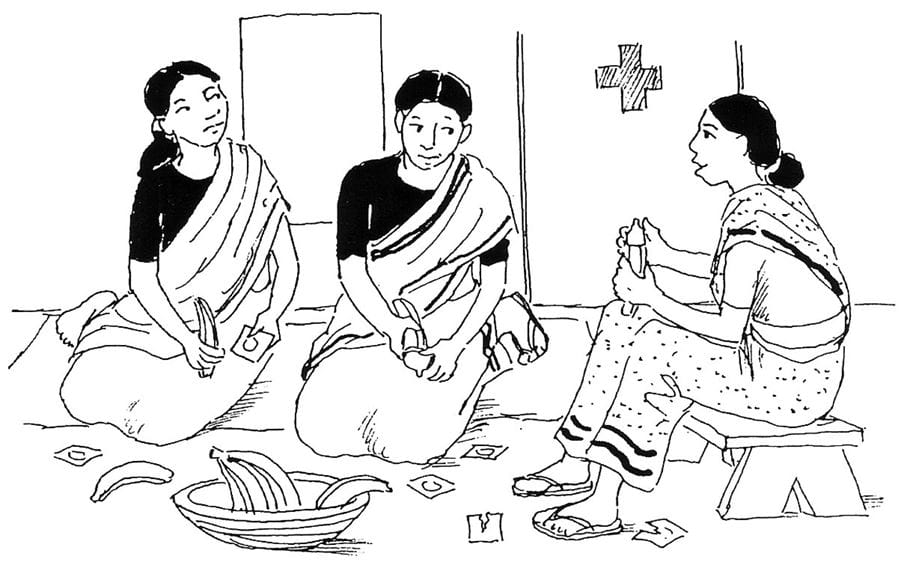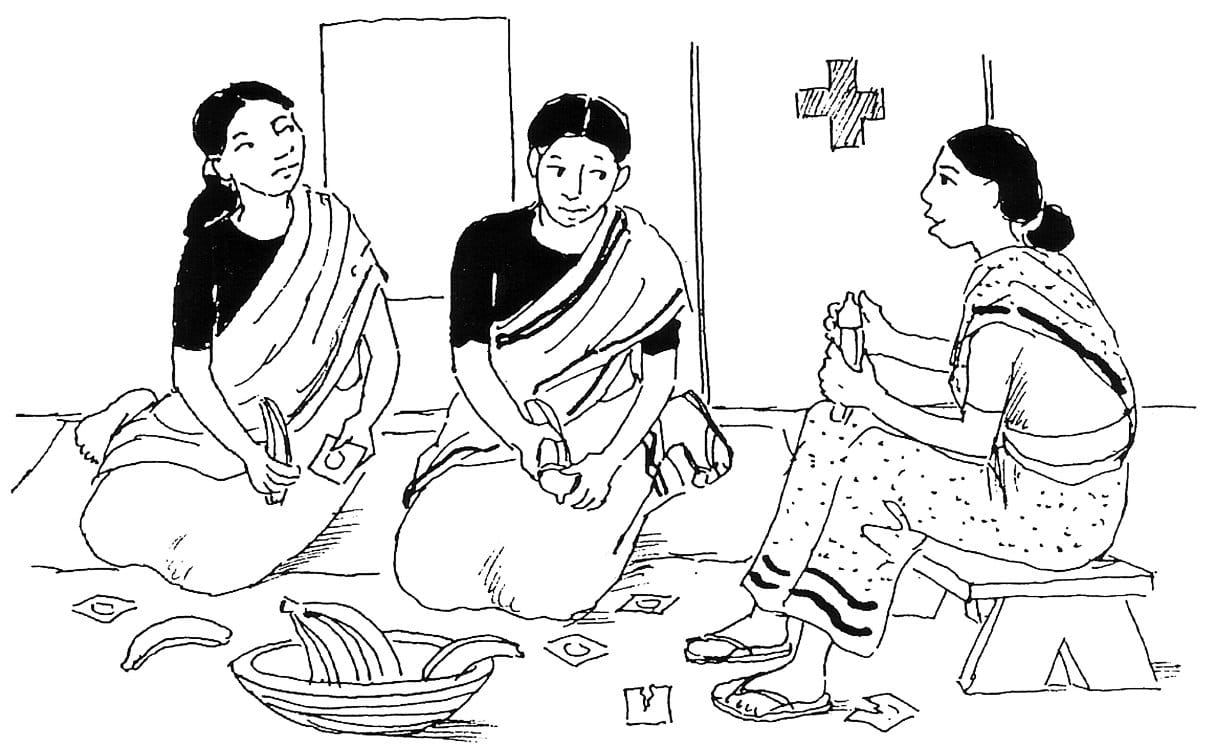When organisations began trying to prevent the spread of HIV, they often encouraged people to follow an approach called ABC (abstain from sexual activity, be faithful, use a condom).

Articles
From ABC to SAVE
When organisations began trying to prevent the spread of HIV, they often encouraged people to follow an approach called ABC (abstain from sexual activity, be faithful, use a condom). However, over time people began to realise that there were some problems with this approach…
2015 Available in English, French, Portuguese and Spanish

From: HIV – Footsteps 98
How to break down stigma, prevent mother-to-child transmission and support people living with HIV


It is important to learn how to use a condom correctly to help prevent the spread of HIV. Illustration: Petra Röhr-Rouendaal, Where there is no artist (second edition)
However, over time people began to realise that there were some problems with this approach:
- It was too narrow. HIV can also be transmitted in non-sexual ways (such as from mother to child or through injecting drugs using non-sterile equipment).
- It did not mention the importance of treatment.
- It could stigmatise people living with HIV, suggesting that they had failed in abstinence, faithfulness or condom use.
- It suggested that individuals alone were responsible for preventing HIV, instead of showing that families, communities and governments had a part to play.
To address these issues, the organisation ANERELA+ (African Network of Religious Leaders Living with or Personally Affected by HIV and AIDS) developed an approach to HIV prevention called SAVE (Safer practices, Access to treatment, Voluntary counselling and testing, and Empowerment). The SAVE approach includes the ABC principles, but also brings in other things that are important in preventing HIV.
Safer practices
It is important to follow safer practices to prevent the transmission of HIV. Safer practices can include:
- choosing to abstain from sexual activity, if you feel that this is the right option for you
- always using a condom and putting it on correctly (see Resources page for more details)
- being faithful to your sexual partner
- preventing mother-to-child transmission of HIV (see pages 8 and 9 of this edition for more details)
- using sterile needles if you inject drugs
- for men, choosing to be circumcised
- making sure that blood transfusions have been tested for HIV
- for those living with HIV, taking antiretroviral therapy (ART) to help reduce the risk of transmitting HIV to others.
Access to treatment
Everyone who is living with HIV should have access to treatment. This includes ART, which allows people living with HIV to live longer, healthier lives. People living with HIV will also need access to treatment for other infections they might catch, such as TB or pneumonia. They will require good nutrition and clean water to make sure that their treatment is effective. It is important for them to have regular blood tests to monitor how well their ART is working.
Voluntary counselling and testing (VCT)
Regular testing and counselling should be available so that everyone can know their HIV status. If people know they are HIV-positive, they can access treatment and take steps to live a healthy life. They can also make sure they don’t pass HIV on to others. People who know that they do not have HIV can take steps to remain that way.
Counselling is essential for people who are going to have an HIV test. They will need counselling before the test to prepare them for the results, and after the test to help them deal with the outcome (whether or not they are HIV-positive). HIV testing and counselling should always be confidential and should be carried out by a trained counsellor.
Empowerment
Empowerment means helping people to take control of their own lives. Empowering people through education and advocacy is an important part of all work on HIV. It is essential to defend the rights of people living with HIV so that they can access the services and support they need. Empowerment includes ending the stigma and discrimination that can make people afraid to go for HIV testing and treatment.
ANERELA+ has now become the international organisation INERELA+. INERELA+ has produced the SAVE toolkit containing training materials on the SAVE approach. You can find out more in the Resources section.
Ideas for using this article
- Discuss whether all the aspects of the SAVE approach are being put into practice in your community.
- If any aspects are missing or are not being done well, discuss what your church or community can do to introduce or improve them.
View or download this resource
Get this resource
Get this resource
Similarly Tagged Content
Share this resource
If you found this resource useful, please share it with others so they can benefit too.

Subscribe to Footsteps magazine
A free digital and print magazine for community development workers. Covering a diverse range of topics, it is published three times a year.
Sign up now - Subscribe to Footsteps magazine


